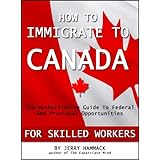Erin Weir, an economist with the United Steelworkers of Canada writes in today's Globe and Mail:
An econometric study based on data through 2007 published last year in Canadian Public Policy concludes, “The expansion [of the Temporary Foreign Worker program] in Canada to all low-skill occupations without limit has had an adverse effect on the Canadian labour market.” There is reason to fear that adding more vulnerable workers to weak labour markets since 2008 has further worsened unemployment and undermined wages.
RBC provides a particularly compelling example of why the Temporary Foreign Worker Program must be reined in. It should be limited to areas with demonstrable skill shortages.
Before importing temporary labour, employers should have to meet a much higher burden of proof that they cannot find Canadian workers. Those temporary foreign workers who are admitted should have a clear path to permanent residency and citizenship, so that they can fully contribute to our economy and exercise the same workplace rights as other Canadians.
An econometric study based on data through 2007 published last year in Canadian Public Policy concludes, “The expansion [of the Temporary Foreign Worker program] in Canada to all low-skill occupations without limit has had an adverse effect on the Canadian labour market.” There is reason to fear that adding more vulnerable workers to weak labour markets since 2008 has further worsened unemployment and undermined wages.
RBC provides a particularly compelling example of why the Temporary Foreign Worker Program must be reined in. It should be limited to areas with demonstrable skill shortages.
Before importing temporary labour, employers should have to meet a much higher burden of proof that they cannot find Canadian workers. Those temporary foreign workers who are admitted should have a clear path to permanent residency and citizenship, so that they can fully contribute to our economy and exercise the same workplace rights as other Canadians.


No comments:
Post a Comment